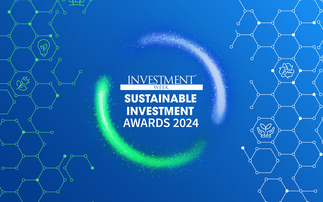Surging ecommerce use during the pandemic comes with the environmental costs of increasing waste from packaging and emissions from delivery vehicles. These should be crucial sustainability issues for investors but too many still see them as minor concerns compared with other industries. We are, however, seeing some creative efforts by companies around the world to address the problems.
Robust environmental policies from ecommerce businesses can serve as examples of industry best practice and are key factors we look for when picking ecommerce names. Investors should not shun these fast-growing companies, but instead use their voice to get them to adopt the most innovative and smart methods in the business.
Not so fantastic plastic
Many investors still see the environmental effects of ecommerce as a minor issue, compared with the energy sector for example, but this view will rapidly become outdated as consumers' insatiable hunger for ever-faster online delivery grows.
We are still very early in the shift of human activity from offline to online and global ecommerce currently only accounts for around 17% of the retail market, but as penetration rises, packaging waste and emissions will become an increasingly critical issue.1 The Covid-19 pandemic has accelerated the adoption of online retail, making it more important for us to address its negative effects.
Chief among these is what will be done with all the packaging created by online shopping. Global demand for filled-air packaging is expected to increase by US$1.16 billion between 2020 and 20242, while some estimates claim that the plastic air-filled packaging created from Amazon deliveries in 2019 could circle the Earth a staggering 500 times.3 Much of this packaging ends up polluting the world's rivers, lakes and seas, affecting water supplies, soil, plants and wildlife.
Packaging dominates plastic waste
The downsides of packaging, logistics and current incentives
Paper can be recycled, and is less toxic than plastic as waste in natural habitats, but it can still have negative effects. The pulp and paper manufacturing industry is the single largest industrial consumer of water in the developed world and the pollution, caused by discharge from mills, harms aquatic habitats as well as human health in some countries. Recycling reduces the need for virgin fibre, but it does not eliminate it - recycled paper still uses around 25% virgin fibre for better strength and quality.
Ecommerce is also leading to more delivery vehicles on our roads. Last year, the World Economic Forum estimated that under a ‘business as usual' scenario, the number of delivery vehicles in the world's 100 largest cities would increase by 36% over this decade, resulting in 32% higher CO2 emissions and a 21% increase in congestion.4
Current incentives work against greener practices. Free delivery for consumers means they tend to opt for home rather than local collection point delivery. Drivers race to deliver in the shortest amount of time possible, leading to speeding, tiredness and engines left idling between drop-offs rather than switched off.
The other incentive problem is regarding packaging. It is more economical for companies to have standardised boxes, often resulting in oversized packaging. In addition, the surge in demand during the pandemic has increased the price of recycled board to such an extent that it may not be economical for many retailers to use recycled packages.
Recycled cardboard price shoots up during the pandemic
Addressing the ecommerce problem
Packaging solutions
Ecommerce companies are increasingly having to confront the issue of sustainable packaging because of more environmentally conscious consumers, legal challenges from environmental groups5 and, particularly for the largest global players, reaching their operational capacities to meet demand.
Amazon's "Frustration Free Packaging" initiative involves collaborating with brands to eliminate supply chain waste and redesigning packaging to be more sustainable. Coupang, the largest ecommerce platform in Korea, has introduced a packaging light model for some products and will accept used packaging for recycling. It has reduced packaging bulk by more than 60% and halved delivery distances while speeding up delivery times from 2018 to early 2020.
Cutting emissions
More companies like Amazon are starting to publish carbon footprint data to give investors a better sense of their emissions profiles. Uber, for example, tracks individual driver's mileage, engine size and idle time to track emissions. It also requires drivers to only use hybrid or electric vehicles and has launched dockless e-bikes and electric vehicle products. In certain cities, Uber has added a small clean air fee to help the company become a zero emissions platform in European, US and Canadian cities by 2030 and globally by 2040.
Government initiatives
Where ecommerce companies are not seriously addressing their environmental footprints, regulators and governments need to step in. This can be necessary for small businesses, which are mostly focussed on growing market share, but local policymakers can often be effective in driving change early in the life cycle of new companies. While unit costs of compliance may be greater for smaller enterprises, they are more versatile and nimbler, which can make it easier to adopt new sustainability standards.
Sustainable packaging is a win-win situation
We are seeing significant innovation from companies in both developed and developing countries to deal with the challenge of sustainable packaging. Pressure from consumers, environmental groups and a gradual realisation from the companies themselves are helping to change ecommerce practices. Investors also play an important role by holding the industry to account for their delivery systems.
Solving the packaging waste and delivery problem can be a win-win scenario, where the environment and companies benefit. If an ecommerce business model is designed with sustainability in mind, it can be both economical and sustainable.
Footnotes
- groupm.com, December 2020
- Businesswire.com, June 2020
- Ibid
- Scientific American, January 2020
- https://www.greenpeace.org/usa/news/greenpeace-inc-sues-walmart-for-deceptive-recyclability-labels-on-its-plastic-products-and-packaging/
Important information
This content is for investment professionals only and should not be relied upon by private investors.
The value of investments (and the income from them) can go down as well as up and you may not get back the amount invested. Investors should note that the views expressed may no longer be current and may have already been acted upon. Reference in this document to specific securities should not be interpreted as a recommendation to buy or sell these securities, but is included for the purposes of illustration only. Issued by Financial Administration Services Limited and FIL Pensions Management, authorised and regulated by the Financial Conduct Authority. Fidelity, Fidelity International, the Fidelity International logo and F symbol are trademarks of FIL Limited. UKM0421/34334/SSO/NA













